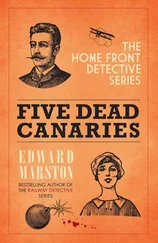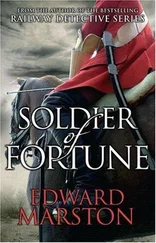Edward Marston - Timetable of Death
Здесь есть возможность читать онлайн «Edward Marston - Timetable of Death» весь текст электронной книги совершенно бесплатно (целиком полную версию без сокращений). В некоторых случаях можно слушать аудио, скачать через торрент в формате fb2 и присутствует краткое содержание. Год выпуска: 2015, ISBN: 2015, Издательство: ALLISON & BUSBY, Жанр: Исторический детектив, на английском языке. Описание произведения, (предисловие) а так же отзывы посетителей доступны на портале библиотеки ЛибКат.
- Название:Timetable of Death
- Автор:
- Издательство:ALLISON & BUSBY
- Жанр:
- Год:2015
- ISBN:9780749018122
- Рейтинг книги:4 / 5. Голосов: 1
-
Избранное:Добавить в избранное
- Отзывы:
-
Ваша оценка:
- 80
- 1
- 2
- 3
- 4
- 5
Timetable of Death: краткое содержание, описание и аннотация
Предлагаем к чтению аннотацию, описание, краткое содержание или предисловие (зависит от того, что написал сам автор книги «Timetable of Death»). Если вы не нашли необходимую информацию о книге — напишите в комментариях, мы постараемся отыскать её.
Timetable of Death — читать онлайн бесплатно полную книгу (весь текст) целиком
Ниже представлен текст книги, разбитый по страницам. Система сохранения места последней прочитанной страницы, позволяет с удобством читать онлайн бесплатно книгу «Timetable of Death», без необходимости каждый раз заново искать на чём Вы остановились. Поставьте закладку, и сможете в любой момент перейти на страницу, на которой закончили чтение.
Интервал:
Закладка:
‘I’m sure that you deserved your promotion,’ said Colbeck without irony. ‘But since you come from these parts, does the name Gerard Burns mean anything to you?’
‘I’ve never heard of him.’
‘Are you quite sure?’
‘I’m absolutely certain,’ insisted Wigg. ‘I have an excellent memory for names. How did this Gerard Burns come to your attention?’
‘His name was written on the back of a reward notice and sent to me.’
Wigg laughed harshly. ‘Then you can forget all about it. The fellow probably doesn’t exist or, if he does, he’ll have no connection whatsoever with the murder investigation. Someone is trying to stir up trouble for him, I daresay. As for that reward notice,’ he went on, ‘we’ve had several names sent to the police station. One person is certain that Prince Albert is the killer while another cites Her Majesty, the Queen. Two people have come up with the name of the Duke of Wellington and it’s only a matter of time before we get equally ridiculous suggestions designed to cause us annoyance.’
‘Gerard Burns does not belong among the hoaxes, Superintendent.’
‘How do you know that?’
‘It’s a question of instinct.’
‘I may lack your detection skills, Inspector, but I do know how to pick up a scent and follow a trail.’ He fixed Colbeck with a stare. ‘What will happen if I and my men solve this crime before you and Sergeant Leeming?’
‘I thought that you were offering to help us?’
‘We’re at your command,’ said Wigg, spreading his arms, ‘but it’s not wholly impossible that, through our own individual efforts, we bring this investigation to the desired end.’
‘What — as you did so in the case of Enoch Stone?’
Wigg gritted his teeth. ‘Please answer my question.’
‘If that happens,’ said Colbeck, pleasantly, ‘I’ll be the first to shake your hand and to congratulate you. I’ll also point out to Mr Haygarth that, instead of bringing us all the way from London, he should have relied on the local police force instead.’
‘Haygarth will never admit that he made a mistake.’
Colbeck studied him. ‘Why do you dislike the man?’
‘It’s not so much a question of dislike as of distrust.’
‘He struck me as being very decisive.’
‘Haygarth is too decisive, Inspector. He exceeds his authority. Mr Quayle would never have done that. I had my reservations about the man but they can be disregarded. As a future chairman, he had all the right qualities.’ Wigg sniffed loudly. ‘That’s not the case with Donald Haygarth.’
‘When we first met you,’ remembered Colbeck, ‘you jokingly put his name forward as a possible suspect.’
‘There was no joke involved, I promise you.’
Colbeck was taken aback. ‘Are you being serious, Superintendent?’
‘I was never more so,’ said Wigg. ‘I may have made the suggestion in a light-hearted way but that was deliberate. If you want to compile a list of suspects, you can cross out the name of Gerard Burns and insert Haygarth in its place. He’s involved in this crime somehow and I hope to be the person to place him under arrest.’
‘How long have you been there?’ asked Leeming.
‘Three years.’
‘Do you like the work?’
‘I love it, Sergeant. It’s opened my eyes in every way.’
‘What did you think of the service?’
‘It was very dignified.’
‘Is that what you’ll say in your report?’
‘Yes,’ said Philip Conway, ‘but I can’t guarantee that my words will be printed. The editor always trims my articles to the bone. The main thing he wanted me to get were the names of all the bigwigs who attended. People like to be mentioned in a newspaper — in the right way, that is.’
Victor Leeming had warmed to the young reporter. Conway had looked shifty at first but, on further acquaintance, he’d turned out to be an enthusiastic young man with a questing intelligence. As soon as the sergeant had introduced himself, Conway had fired half-a-dozen questions about Scotland Yard at him, and he was still wide-eyed about meeting a man who worked alongside Inspector Colbeck.
‘I’ve followed his career,’ he explained, ‘so I must have seen your name as well. We have all the London newspapers here, you know. They’re delivered by train at a surprisingly early hour.’ He gave a sheepish grin. ‘My ambition is to work on one of those papers one day.’
They were in the Malt Shovel, the public house where Leeming had booked the room and where he’d invited Conway to share a pint of beer with him. From the table where they sat, they could see a malt shovel perched on two hooks above the bar. The beer was exceptional and the atmosphere flavoursome. Leeming had taken to the place immediately.
‘I’ve got some cuttings about the Railway Detective’s cases,’ said Conway with a boyish grin. ‘You saved the royal train from being blown up, didn’t you?’
‘We were lucky enough to do so,’ replied Leeming, modestly.
‘Then there was a case somewhere in Yorkshire.’
‘The village was called South Otterington. Actually, Spondon reminds me of it in some ways. I can’t say that I enjoyed my stay in Yorkshire very much but there was an unexpected bonus.’
‘What was that, Sergeant?’
‘We found a village named Leeming.’
They shared a laugh then sipped their drinks. Ordinarily, Leeming would have been very circumspect when talking to a reporter. Colbeck had warned him to say too little to the press rather than too much. Some editors had an agenda that included biting criticism of the Metropolitan Police Force. The Derby Mercury had no such axe to grind. In its edition that day it had given an account of the murder and welcomed the arrival of the detectives from Scotland Yard. Besides, Leeming decided, the young reporter was not there to denigrate them in any way. Conway was in awe of them. He was also a native of Derbyshire and therefore able to relate more easily to local people. Leeming had not just made a new friend, he’d acquired an assistant.
‘Then there was that case in Wales,’ recalled Conway.
‘Let’s forget our past successes,’ said Leeming, firmly. ‘If we spend all our time talking about them, we won’t be able to add to the list. I need to know this village inside out. You may be able to help me.’
‘I’ll do what I can, Sergeant, but I have to answer to an editor. He tells me where and when I can go. I was sent here to attend the funeral and to gauge the reaction of Spondon to the murder. The second bit is easy. This village has been knocked senseless by the crime.’
‘Who have you spoken to so far?’
‘Lots of people,’ said Conway, fishing a notebook out of his pocket and leafing through it. ‘The first person I interviewed was Walter Grindle. It was his daughter who leapt into the grave where Mr Quayle was lying.’
‘I saw the blacksmith as well. On the way into church, he stood close to me. I heard him say what an effect the discovery had had on his children.’
‘They’re terrified.’
‘In the same circumstances, mine would be as well.’ Leeming sat back and his chair creaked. ‘What exactly did Mr Grindle say to you?’
Nottingham was a thriving manufacturing town with a population that had increased markedly in the past decade. It owed much of its reputation to a textile industry in which the quality of its lace, in particular, stood out. Yet it had by no means lost all of its charm and its picturesque aspects. When he glanced through the window of his compartment, Colbeck saw a community sited conveniently on the navigable River Trent and still possessing striking relics of its past such as its Norman castle, now in ruins but with undeniable grandeur. News of the murder in the neighbouring county had caused great upset in Nottingham because the victim had hailed from there and was a well-known figure. As soon as he left the train, Colbeck overheard people speculating on the identity of the killer and his motivation. The name of Vivian Quayle seemed to be on everyone’s lips.
Читать дальшеИнтервал:
Закладка:
Похожие книги на «Timetable of Death»
Представляем Вашему вниманию похожие книги на «Timetable of Death» списком для выбора. Мы отобрали схожую по названию и смыслу литературу в надежде предоставить читателям больше вариантов отыскать новые, интересные, ещё непрочитанные произведения.
Обсуждение, отзывы о книге «Timetable of Death» и просто собственные мнения читателей. Оставьте ваши комментарии, напишите, что Вы думаете о произведении, его смысле или главных героях. Укажите что конкретно понравилось, а что нет, и почему Вы так считаете.












